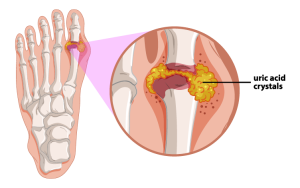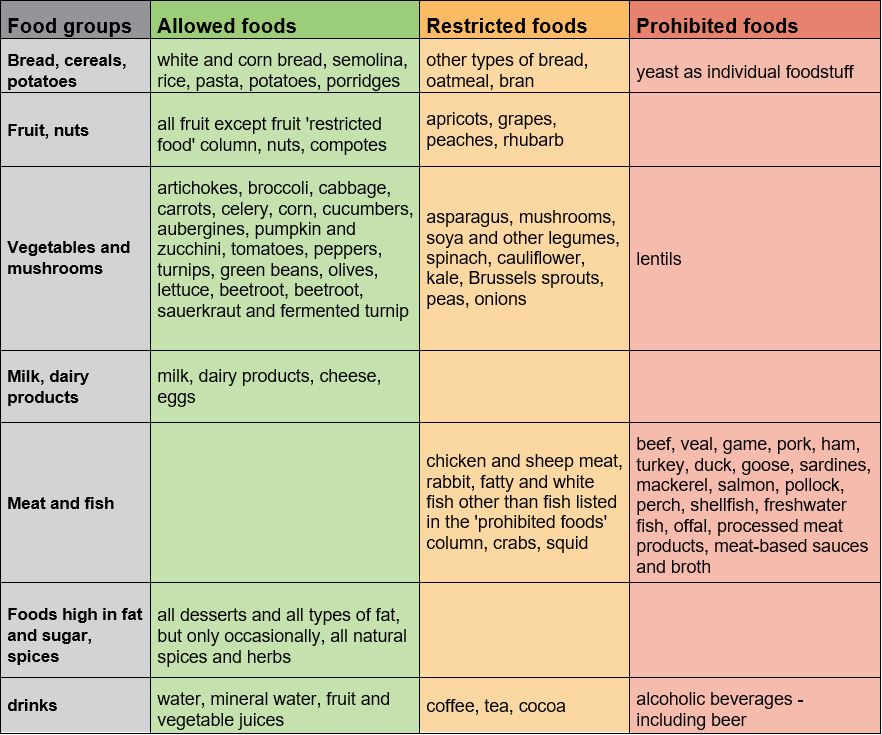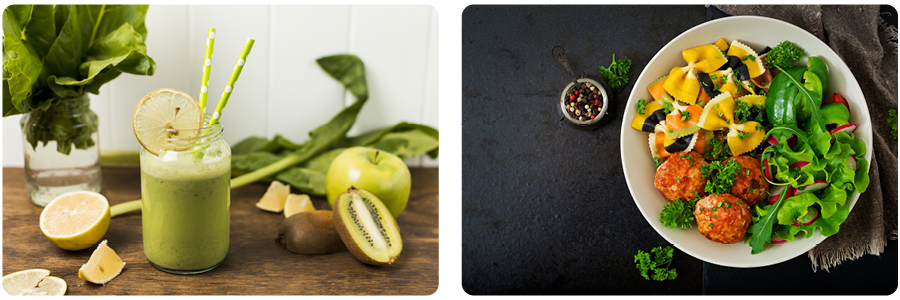Gout: Disease of the Kings

If you are woken from your sleep by a strong, searing pain in your joints, you probably have gout. It is a common and complex form of arthritis that can affect anyone.
Gout usually starts in the lower limbs as acute monoarthritis, but if it persists for a longer period of time it can progress to its chronic polyarticular form, affecting the joints in the upper limbs as well. It is a disease caused by excess and was once considered the disease of kings.
However, since dietary habits have changed considerably over the years, it has now become a disease of the masses.

What is gout?
The Latin name for gout is Arthritis uratica. Overweight individuals and those with certain medical conditions are at a much higher risk of developing the disease.
Gout is genetic, meaning that if your parents had gout, it is very likely that you will experience symptoms as well. The disease is characterised by sudden and severe attacks of pain, joint swelling, redness and tenderness.
 Gout is more common in men than in women, primarily because the levels of uric acid are lower in women. In men, the first symptoms appear between the ages of 30 and 45, in women, only after menopause.
Gout is more common in men than in women, primarily because the levels of uric acid are lower in women. In men, the first symptoms appear between the ages of 30 and 45, in women, only after menopause.
In addition to an unhealthy diet characterized by excess, it is often linked to hereditary factors and improper kidney function.
In most cases, the first attacks subside within a few days without treatment, but if the disease is prolonged and untreated, the attacks usually last for several weeks.
In addition to an unhealthy diet characterized by excess, it is often linked to hereditary factors and improper kidney function.
In most cases, the first attacks subside within a few days without treatment, but if the disease is prolonged and untreated, the attacks usually last for several weeks.
What causes gout?
Gout is caused by deposition of uric acid crystals in the joints, which occurs when uric acid concentration in the blood is elevated. In addition to an unhealthy diet and overnutrition, the disease is also thought to be triggered by anticancer drugs, certain drugs for lowering high blood pressure, aspirin, psoriasis and certain types of blood cancers.

As patients with gout often have an associated metabolic syndrome and therefore an increased risk of developing cardiovascular disease, they also require regular monitoring of their blood pressure, blood sugar and lipids and should maintain a healthy weight. Gout also affects other tissues or joints, such as the knees, soles, ankles, wrists and fingers
What are the symptoms of gout?
The disease often starts with severe pain and swelling of the joint, which turns red and warm. The joint is very painful to the touch, the most commonly inflamed joint is the joint at the base of the big toe. Chills or fever may also occur.
Gout can also affect other joints – the instep, ankle, heel, knee, wrist or elbow. The joint inflammation will subside spontaneously within one to two weeks; if medication is used, the inflammation will subside quicker. Later on, attacks affect more joints, are more severe and last longer.
Uric acid crystals may cause kidney damage, the risk of kidney stones is increased.
What to eat if you have gout?
Gout is one of the mildest forms of arthritis that can be managed with a healthy lifestyle.
A diet consisting of foods low in purines (see table) is recommended. This reduces the chance of the disease getting worse. Gout is often accompanied by high blood pressure, obesity, diabetes, hyperlipidaemia and atherosclerosis.
It is therefore recommended to lose excess weight, eat foods rich in complex carbohydrates, reduce the intake of protein and saturated fats and generally adhere to a low-fat diet. We also advise you to regulate your blood pressure.
Avoid foods rich in purines, i.e. bread and pasta made from white flour, crab, anchovies, sardines, herring, caviar, mussels, pollack, oysters, salmon, tuna, mackerel, trout, haddock, scallops, red meat (beef, lamb), liver, pork, meat-based sauces, cauliflower, spinach, asparagus, mushrooms, lentils, peas, beans, oatmeal, peanuts, fried potatoes, candy, cakes, cookies, drinks and juices with artificial additives, alcohol and brewer’s yeast.
Avoid foods containing purines.

If you cannot give up these foods completely, it is advisable to at least try to reduce their intake and thus reduce your risk of developing the disease or making it worse.

It is also important to drink a sufficient amount of fluids – from one and a half to two litres –, with plain water being the best choice. Additionally, drink a glass or two of freshly squeezed vegetable or fruit juice.
Recommended foods include protein and unsaturated fats, foods high in potassium, avocado, pineapple, cherries, soya, sprouts, celery and herbal teas.



